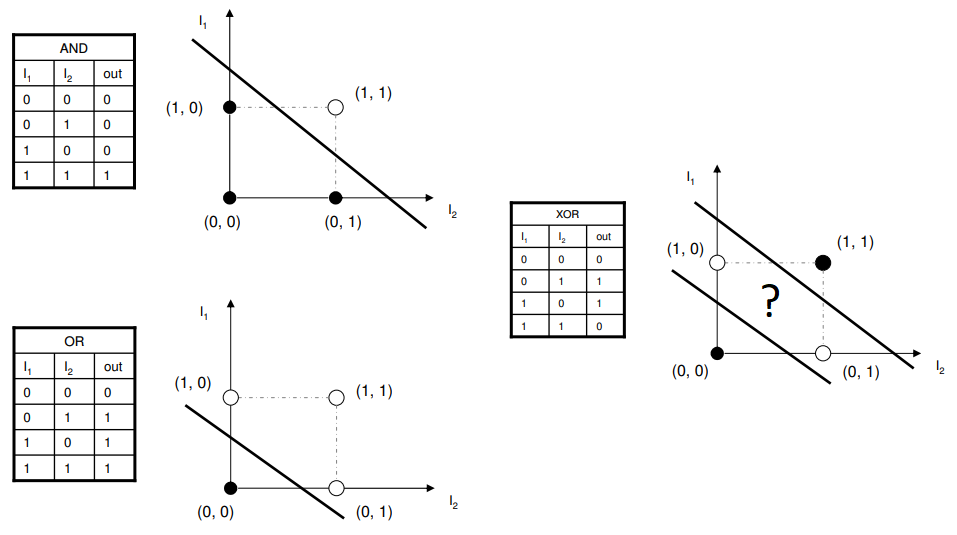Starter's guide to C language and a bit of Machine learning in C lang
C concepts
LIBRARIES
#include <stdio.h> : standard input - output , printf , stdin , stdout
#include <string> : For string operations string a = “this is a string”
#include <stdlib.h> : (https://www.tutorialspoint.com/c_standard_library/stdlib_h.htm) standard libraries , that contains functions, size_t , free , allocate , malloc , realloc , exit , rand , srand , abort , exit , rand , RAND_MAX, EXIT_SUCCESS , EXIT_FAILURE
#include <time.h> : time() , use
cos(double) , sin(double) , tan(double) , sqrt(double) , exp(double) .. : They all accept double’s values
cosf(float), sinf(float) , tanf(float) , sqrtf(float) , expf(float) .. : They all accept float values
PRINT STATEMENTS
printf("The integer values is %d\n", integer_value);
printf("The float value is %f\n", float_value);
printf("The double value is %lf\n", double_value);
printf("The string value is %s\n", string_value);
printf("The character value is %c\n", character_value);
C-UTILS
STRUCT
struct DataStrucuture{
int age;
string name;
bool gender;
}
MACROS
Macros in C are defined using the #define preprocessor directive. They allow you to create symbolic constants or functions that are replaced by their corresponding values or expressions during preprocessing.
Defines a constant value or a function that can be used multiple times
#define PI 3.141592653589793238462643383279
#define MAX(a, b) ((a) > (b) ? (a) : (b))
#define NUM_TRAINING_EXAMPLES sizeof(training_examples) / sizeof(training_examples[0])
C LANG. COMPILATION AND LINKING
This is a bit interesting part .. and the core of C lang ..
libm : math library, used for advanced mathematical functions that provides mathematical functions like expf, sin, cos etc
Written in C and some parts in assembly lang
Compilation : Translates your C code into machine code for individual parts (produces .o object files). Linking: Combines all the object files and libraries (like libm) into a final executable program.
The header files tells that compiler about declaration of these function but doesnt not include there actual code ..
Linking tells the implementation of those functions
gcc gates.c -o gates -lm : It does both compilation and linking
The compilation part, gcc gates.c -o gates
The linking part, ` -lm`
First gets compiled then we do the linking so that it actually runs ..
Data Types in C
Basic Types
intfloatdoublecharvoid
Modifier Types
shortlonglong longunsigned intunsigned charunsigned shortunsigned longunsigned long long
Boolean Type
_Bool(introduced in C99)
Complex Numbers
_Complex(introduced in C99)_Imaginary(introduced in C99)
ARRAYS AND MATRICES
1D ARRAY
dtype array_name[size] = {value1, value2, value3, ...}
ex:
int arr[5] = {1, 2, 3, 4, 5};
float arr[5] = {1.1, 2.2, 3.3, 4.4, 5.5};
bool arr[5] = {true, false, true, false, true};
MATRIX
STATIC DECLARATION
dtype array_name[size1][size2] = {
{value1, value2, value3},
{value1, value2, value3},
{value1, value2, value3,}
}
ex:
int arr[3][3] = {
{1, 2, 3},
{4, 5, 6},
{7, 8, 9}
};
`second dimension needs to be passed (at least)`
float arr[][3] = {
{1.1, 2.2, 3.3},
{4.4, 5.5, 6.6},
{7.7, 8.8, 9.9}
};
bool arr[][3] = {
{true, false, true},
{false, true, false},
{true, false, true}
};
int [][2][3] = {
{
{1,1,1},
{2,2,2}
}
}
`While declaring a matrix, the first no. is not required to be explicitly mentioned rest no. needs to be mentioned`
DYNAMIC DECLARATION
FUNCTIONS
dtype function_name(input_param1, input_param2 , ){
// perform operations
return xx;
}
void function_name(int a, int b){
int c = a + b;
// returns nothing
}
int function_name(int a, int b){
int c = a*b;
return c;
}
float function_name(float a, float b){
float c = a*b;
return c;
}
FOR LOOP
If the type is positive and unsigned_int then we can use size_t ::
for (size_t i =0 ; i < count_size ; i++){
// perform operations
}
If the type is int ::
for (int i = 0; i < count_size ; i++){
// perform operations
}
WHILE LOOP
while ( x < 10){
// perform operation
}
POINTERS AND TYPEDEF
typedef
Alias to an existing data type , doesnt create a new data type rather create a new alias for existing data type
typedef existing_name new_name
Examples:
typedef unsigned long ulong;
typedef struct { int x; int y;} Point
typedef int* int_ptr;
typedef float array_of_3_floating_number[3]
pointer
Pointer to an integer, float .. etc
float* fp = 3.0f
Pointer to an float Array
float* fptr = {1.0f, 2.0f, 3.0f}
Pointer to an 2D Array
float fpmat[2][3] ={
{1.f , 2.f, 3.f},
{1.f , 2.f, 3.f}
};
float* mptr[3] = fpmat; // pointer to an array of 3 floats
BIT OF ML ALSO ADDED

DERIVATIVE IN ML
Taking the derivative of the pure function vs function with values , does that make a difference ? let’s say
USING FUNCTION WITH VALUES
dw1 = (x1*w1 + x1*eps + x2*w2) - (x1*w1 + x2*w2) / eps ==> (x1*eps)/ eps = x1
// USING PURE FUNCTION
// dw1 = (x1*w1 + x2*w2) ==> dL/dw1 ==> x1
// Its the same thing, doesn't matter !!
